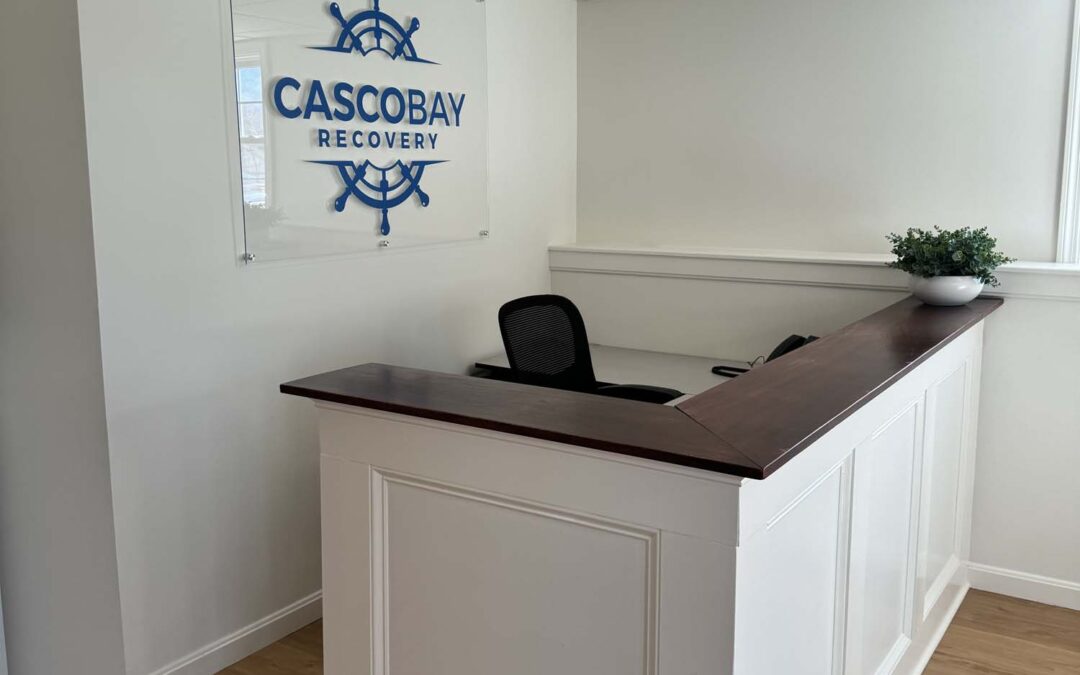Those who are addicted to heroin should reach out to a treatment center as soon as possible. Of course, professional help for heroin addiction can be easily found. For most of those in heroin addiction recovery, going to rehab could spell the difference between a fatal overdose and a lifetime of sobriety.
Heroin is highly addictive and changes people’s thought patterns and behaviors. Apart from the eventuality of overdosing, regular heroin use can lead to risky behaviors such as sharing needles which can increase the chances of contracting HIV or hepatitis C virus (HCV).
If you or someone you love has a heroin addiction, there’s no time to waste before getting professional help. Looking for a heroin rehab center in Portland, Maine? Contact Casco Bay Recovery. Reach out to our team online or call us at 844.956.3520 to ask about our heroin addiction treatment program.
How Heroin Addiction Develops
Heroin is an opioid drug made from morphine. The latter is a natural substance taken from the seed pod of the opium poppy plants, which are grown in Colombia, Mexico, and South Asia. Heroin can be in the form of a brown or white powder – or a sticky black substance that’s known as black tar heroin.
People can inject, sniff, smoke, or snort heroin. Some may even mix heroin with crack cocaine, a practice that’s often called speedballing. Heroin enters the brain rapidly after dosing and binds to receptors in areas involved in feeling pain and pleasure – as well as those involved in controlling heart rate, sleeping, and breathing. This action releases the chemical dopamine in the brain, which provides a temporary high.
What Are the Signs That You Should Go to Heroin Rehab?
The brain of someone with a heroin addiction won’t naturally produce dopamine the way it used to before becoming addicted. This heroin tolerance results in taking higher or more frequent doses to achieve the high they’ve come to expect.
It’s at this point that those with heroin addiction will start to slip if they’ve successfully hidden their substance use disorder so far. Typical signs and symptoms of heroin use to watch out for include:
- Agitation and aggression
- Constipation
- Constricted pupils
- Decline in personal hygiene
- Depression
- Drowsiness and slurred speech
- Financial problems
- Memory problems
- Needle marks if injecting heroin, runny nose or nose sores if snorting it
- Reduced sense of pain
- Sudden secrecy and risky behavior
What Can You Expect from Heroin Addiction Treatment?
Creating a comprehensive heroin addiction treatment program can be challenging. Some negative effects of addiction that clients experience include relationship, employment, and financial problems—and every client will have different needs throughout their recovery.
However, research has shown that the most effective heroin treatment programs integrate both behavioral therapy and medication. Medication-assisted treatment (MAT) during the heroin detox process can also help keep clients safe because prescription drugs can reduce discomforting withdrawal symptoms and heroin cravings.
Behavioral therapy involves counselors and therapists helping clients learn about their heroin addiction and answering important questions, such as:
- What caused them to develop their addiction?
- What are their triggers for heroin use?
- Are there coping mechanisms they can use to overcome triggers and setbacks?
During group or one-on-one sessions, clients can work on and practice their decision-making and coping skills along with new and healthy habits. Later in the heroin addiction treatment program, they may also create an aftercare plan for long-lasting recovery with the help of their counselors and therapists.
Learn About Casco Bay Recovery’s Heroin Addiction Treatment Programs in Portland, Maine
Searching for a heroin rehab center in Portland, Maine? Contact Casco Bay Recovery’s team online or call us at 844.956.3520. Here, you’ll find high-quality care in a beautiful setting. Set yourself up for success with the help of our team.








